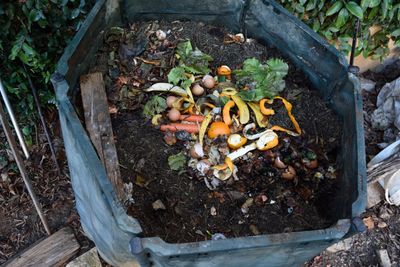Can You Compost Liquids?
Eco-friendly cooks and gardeners often save organic matter in piles or bins and make their own compost. These should have a good balance of nitrogen and carbon, sit in a sunny location, and be turned frequently for best results. The other ingredient is moisture. This is where adding liquids to compost can help. There are a variety of liquids that are suitable, but a few you should probably avoid. The top of your compost bin will often list the items your city will allow. Some may include what liquids are allowed, but most steer clear of these due to the weight and messiness. That doesn’t mean you can’t compost liquid in your own compost system, however. For instance, if you use a biodegradable dish soap, you can save your washing up water and use it to keep your compost pile moist. The general rule is that the liquid should be plant based. As long as the liquid does not contain any chemical preservatives, drugs, or other items that could contaminate soil, composting liquids gets the thumbs up.
What Liquids are OK to Compost?
Ketchup
Graywater
Soda
Coffee
Tea
Milk (in small amounts)
Beer
Cooking oil (in small amounts)
Juice
Cooking water
Urine (drug free)
Canned food juices/brine
Again, any liquid is fine, but if it contains fats, it should be added in minimal amounts.
Tips on Composting Liquids
Keep in mind when adding liquids to compost you are increasing moisture. While the pile or bin contents need moisture, having a boggy situation can invite disease and rot and slow down the composting process. If you are liquid composting, make sure you add dry leaves, newspapers, paper towels, straw, or other dry sources to help sop up the liquid. Aerate the pile well so excess moisture can be evaporated. Keep an eye on the compost pile to regulate the moisture as needed. You really can compost liquids and contribute to a cleaner, more sustainable future.
